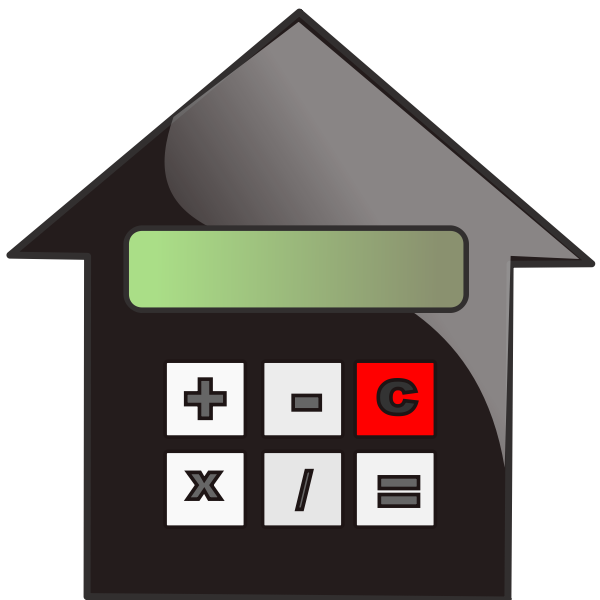Nowadays, various types of mortgages are available when you decide to buy a home. However, the more options you get, the more difficult it can be to choose the right one. Each mortgage option comes with different terms, advantages, and disadvantages, depending on the type of property you want to purchase and your credit history. Two common types of mortgages include the Federal Housing Administration (FHA) loan and the VA loan, both insured by the government and granted by banks or agency-approved lenders.
Understanding the different types of loans at your disposal helps you choose one that provides you with the most convenience and flexibility. Not having proper knowledge of these loans can put you in a tight spot with higher interests and unaffordable monthly payments and might also put a stopper on your dream of owning a home.
We have created this guide to help you understand the difference between FHA and VA loans and let you decide which one suits your needs better.
What are Federal Housing Administration (FHA) Loans?
A Federal Housing Administration loan is a type of home mortgage covered by the federal government and approved by a financial institution or lender. Compared to conventional home loans and mortgages, FHA loans have a much lower down payment requirement. The best thing about this type of home loan is that it also has a lower credit score requirement than other loans.
The low credit score requirement makes it easier for low or moderate-income families to buy their first home without worrying about making a hefty down payment or maintaining a good credit score. Moreover, since the government insures these loans, banks are willing to loan more money to low-income homebuyers who don’t have enough money for a down payment.
What are VA Loans?
Like FHA loans, a VA loan is a type of home mortgage that the government backs, particularly the US Department of Veteran Affairs (VA). They are also lent by banks, lenders, and other financial institutions approved by a mortgage approval agency. VA loans are specially designed to help people serving in the military, veterans, and military spouses.
The United States government introduced the VA loan in 1944 to help service members buy a home without putting a high down payment or needing excellent credit. So far, the program has lent money to more than 25 million veterans and service members to buy their first home or refinance a property. It is much more flexible than other traditional forms of home loans and mortgages.
Requirements for FHA Loans
The Federal Housing Authority (FHA) has also been around for several decades, and it has helped millions of people buy their first homes. The program makes it possible for banks and other conventional lenders to help low and mid-income households buy a home, but the government assures the loans, providing lenders relief and trust.
In the event of non-payment by the borrower, the FHA is required to intervene. Since the government backs FHA loans, lenders are much more lenient regarding credit scores, and they offer loans to people who don’t have a perfect credit history. Lenders are also willing to give out loans at a reduced interest rate, making it easier for FHA borrowers to make payments according to their budget. Moreover, FHA borrowers have the freedom of getting home without placing a huge down payment, which relieves them from the worries of saving enough money.
However, FHA loans aren’t available to just about anyone. There are certain requirements and criteria that the applicant needs to fulfill before getting approved for an FHA home loan. For instance, FHA borrowers should have a credit score not below 500 to even consider qualifying. The down payment for the loan can be as low as 3.5% of the property’s current price, but to pay anything less than 10%, they need to have a credit score of at least 580. There is no guarantee that you’ll get qualified and factors such as your debt to income ratio and recent credit history are very important.
Another thing to keep in mind is that FHA home loans come with mortgage insurance, which is a form of payment that secures the guarantee made by the government. It is the third type of payment that borrowers have to make, aside from the principal amount and interest. They can pay mortgage insurance in two ways.
The first method to pay mortgage insurance is through an upfront payment, which amounts to 1.75% of the loan’s value. The second method involves monthly payments, which are equal to 0.45% to 1.05% of the loan’s value. The monthly payment amount also depends on how much down payment you have made and the length of the loan.
Unless you have made a down payment of 10% or above, you will calculate the monthly premium on mortgage insurance for the entire duration of the loan. If the borrower has paid more than 10% of the home’s value as a down payment, lenders will calculate their mortgage premium for 11 years.
An FHA Loan in Texas is used most often by first time home buyers who have not saved enough for the 20% down payment required by Conventional Loans.
Requirements for VA Loans
Like the FHA loan program, VA loans are also insured by the government, and they are also offered by banks, private lenders, and other conventional institutions. However, the Department of Veterans Affairs is backing the loans in this case. Compared to traditional loans and FHA loans, VA loans have a much lower down payment requirement.
In most cases, an approved borrower might be able to get a VA loan without even making a down payment. Nearly 90% of all VA loans are issued without any down payment involved, making it much easier for veterans and serving members to buy and build their homes.
In the case of VA loans, there is no specified or pre-determined credit score requirement that the applicant has to fulfill. The lender reviews applicants on a case-by-case basis and can decide whether or not to grant a loan based on their criteria instead of following some preset criteria that the Department of Veterans Affairs may have issued.
One of the key requirements of the VA loan is that the applicant should be a military veteran or active-duty service member. Members of the National Reserve and the National Guard are also eligible to apply for a VA loan. The tenure or duration requirements of a person’s service depend on how much time they served and whether they are currently actively serving or not. Moreover, if an active-duty member was discharged for a qualified reason, the length of service requirement won’t apply to them.
In some cases, the spouses, or surviving family members, of members who are prisoners of war or veterans who are missing in action might be eligible to apply for the VA loan. Veterans or serving members need to apply for a certificate of eligibility before applying for a VA loan.
FHA Loans vs. VA Loans – Similarities and Differences
When searching for different mortgage options, it is worth your time to check out both FHA and VA loans, apart from simply searching for conventional options. If you are eligible for both types of home loans, you can read up on the similarities and differences of both to better understand how they work and which one is better for you. Here are some factors we will use to weigh both FHA loans and VA loans against each other.
Eligibility
Eligibility makes up for the biggest difference between FHA loans and VA loans. In the case of VA loans, you can only apply if you are a veteran of the armed forces, active-duty serving member, surviving spouse of a veteran, or a prisoner of war. Moreover, you need to fulfill the length of service criteria, which varies on a case-to-case basis. On the other hand, there are eligibility criteria for FHA loans, and they can be availed by anyone, regardless of their profession, gender, marital status, income, etc. All you need is a Social Security Number to be able to apply for an FHA loan.
Home Type
The main similarity between FHA loans and VA loans is that you can only purchase a home that you intend to use as your primary residence and for no other purposes. For instance, you can’t use your FHA or VA loan to buy a property for rental or investment purposes, and you also can’t use the money to buy a commercial or vacation property. The availed loan has to be used in the property you have mentioned in your application, and you will be mandated to move into the home you buy within a stipulated period.
Both FHA and VA loans allow you to buy a home containing one to four units. While most people think that both these loans are for first-time homeowners only, there are no rules that suggest or enforce this. However, both the loans are much more flexible and suitable for first-time buyers, and they help many people switch from paying rent on someone else’s property to paying the mortgage for their property. Even if you have a property while applying for one of these loans, you can still get approved, provided that you will reside in the new home you buy.
Minimum Credit Score
One notable difference between VA and FHA loans is the credit score requirements. FHA loans require at least 3.5% down payment if your credit score is 580 or higher. However, if your credit score is between 500 and 579, you will have to make a 10% down payment at least. Moreover, other factors come into play that determine the down payment you will be required to make. Since every situation is unique, you can apply to get a clearer idea of this.
On the other hand, the VA loan program has no minimum requirement for credit score or even down payment, thus making it a much more flexible and suitable option. When it comes to the approval process for VA loans, lenders look at the broad range of information for the applicant, including their asset value, employment history, annual income, credit history, and other particulars. VA loan applicants mostly get a home without any down payment, a major difference between the two loan programs.
Maximum Loan Amount
Another point of difference between VA loans and FHA loans is the maximum loan amounts lenders can disburse to borrowers. In this regard, the loan amount limit for VA loans is similar to that of conventional mortgages. This limit is defined according to certain factors, including the number of units in the house and its location.
For instance, if the home you have selected is in an area with a higher cost of living, your mortgage amount limit will also be higher. On the contrary, your loan amount limit will be lower if you find a home in an area with a lower cost of living.
For VA loans, borrowers are protected by entitlement, referring to the amount paid by the Department of Veterans Affairs to the lender if the borrower defaults on their payments. Two types of entitlement apply in this scenario: basic entitlement and bonus entitlement.
Basic entitlement requires the Department of Veterans Affairs to pay 25% of the principal amount of $36,000, whichever is lesser, to the lender. Usually, lenders will approve a loan that is 4x the amount of basic entitlement without requiring a down payment. Moreover, bonus entitlement is calculated according to the conforming loan limits for conventional loans in the applicant’s area. The Department of Veterans Affairs will pay 25% of the conforming loan limit to the lender in case of default.
The VA entitlement isn’t an exact measure of the maximum loan amount a lender can give. The loan limit can be increased if you look for a bigger home or a home in a more expensive area.
Minimum Down Payment
Similar to the credit score requirement, the main difference between FHA and VA loans is that the former has a minimum requirement of 3.5% for applicants with a credit score between 500 and 579. On the other hand, VA loans have no minimum down payment required, and nearly 90% of all cases are approved without any down payment.
Maximum Debt-to-Income Ratio
The debt-to-income ratio weighs your monthly debt to your monthly income after taxes, and a simple division function gets you this value. For instance, if you earn $5000 every month and your debt amounts to $1000, then your debt-to-income (DTI) ratio Is 1000 / 5000 = 0.2 or 20%. The higher this percentage is, the less likely it will be for lenders to approve your loan.
Lenders always review an applicant’s debt-to-income ratio with their loan application, and it helps them determine whether the applicant will be able to pay the requested loan amount easily or not. The maximum DTI ratio for an FHA loan is 43%. In some cases, lenders might approve borrowers with a DTI ratio as high as 50% but there would need to be compensating factors such as a higher down payment and a superb credit rating.
There is no maximum debt-to-income ratio limit for VA loan applicants, but lenders mostly prefer 41% or lower. The lower your DTI ratio, the more likely you’ll qualify and it’s a predictor of your ability to pay off your debt timely. Although FHA loans allow you to go up to a 50% DTI ratio, it is your lender that will make the final decision and it’s rare to get an approval with such a high DTI.
Mortgage Insurance Premiums
Another key difference between FHA and VA loans is the mortgage insurance premium. When you avail of an FHA loan, you are required to pay an upfront mortgage insurance premium and a monthly premium. Moreover, if your down payment is less than 10% of the property value, you will have to pay the monthly premium for the complete duration of the loan.
On the contrary, VA loans don’t have any mortgage insurance, but they also have an upfront funding fee, which ranges between 1.4% and 2.3% and is calculated according to how much down payment you have made.
Interest Rates and Closing Costs
The interest rates for VA loans are fixed and usually lower than FHA loans or even conventional loans. Moreover, the closing costs are also lower on VA loans. On the other hand, FHA loans may have fixed or adjustable interest rates.
Loan Tenure
A major similarity between VA loans and FHA loans is that they provide you with different repayment tenures. You can even apply for an FHA or VA loan with a 30-year repayment schedule per your budget and requirements. Apart from this, you can also opt for 10 or 15-year tenures.
Application Process
Lastly, VA loans and FHA loans have similar application processes, in the sense that you have to submit similar documentation and paperwork for identity and income verification. In this regard, both these loan options are similar to conventional loans. Some of the required documentation includes salary slips, income tax returns, bank statements, proof of debts, etc.
This concludes our extensive and comprehensive article comparing FHA loans vs. VA loans. Both loans are guaranteed and insured by the United States government and issued by banks and conventional lenders. VA loans can only be availed by armed forces veterans or service members, while FHA loans are open to everybody. VA loans are the more preferred option in terms of ease and flexibility. Follow the link for FHA to VA Refinance.
Also read VA Loan vs Conventional Loan.c





